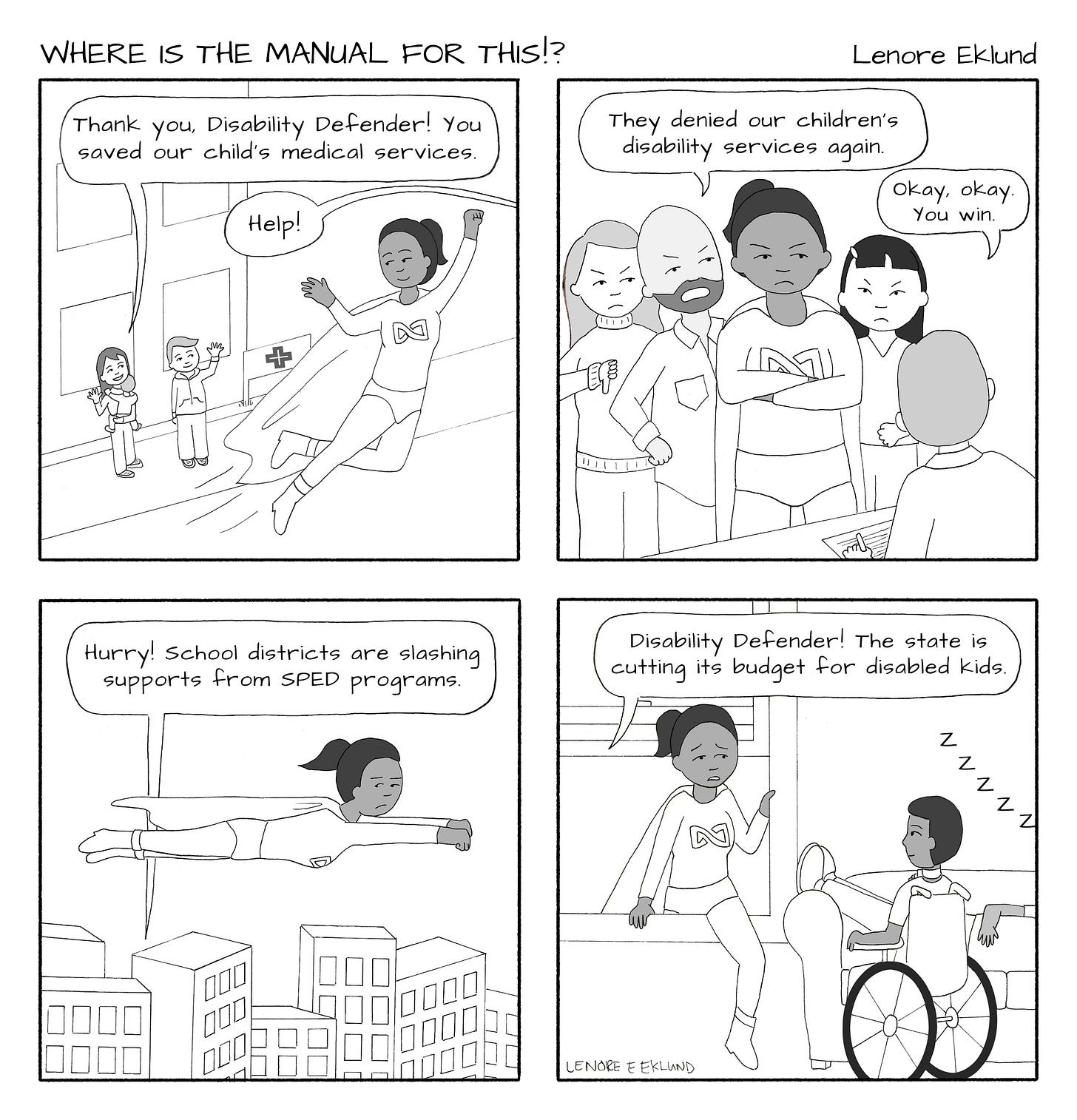It's a bird, it's a plane, it's: Supermama!
Plus: What Trump's next presidency could mean; Maryland families fight DD services changes; and a new study shows parents of disabled kids need emotional support
The Disability Defender strikes again but a Supermama’s work is never done! Good thing the Disability Defender has a good partner, staying home with the kiddo, while she is off on her missions for truth and justice for all!
On the second Sunday of every month, we feature Where is the Manual for This?!, an editorial cartoon about the medical mom life from




